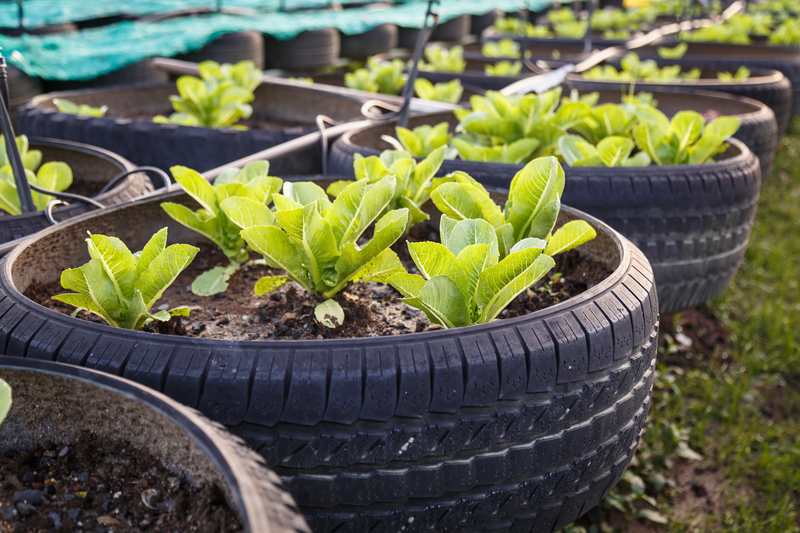Sorting Through Your Recycling: What Goes Where?
Posted on 01/07/2024
Recycling has become a crucial part of our daily lives as we strive to minimize waste and protect the environment. However, with the increasing variety of materials used in packaging and the constant changes in recycling guidelines, it can be challenging to know what items go where. In this article, we will guide you through sorting your recycling by providing tips and information on what goes where.
The Basics of Recycling
Before delving into the specifics of sorting your recycling, it is essential to understand the basics of recycling. Simply put, recycling is the process of collecting and reprocessing materials that would otherwise be considered waste. These materials are then turned into new products or reused in some way, reducing the need for raw materials.
Most commonly recycled items include paper, plastic, glass, aluminum cans, and cardboard. Other materials such as electronics, batteries, and textiles can also be recycled but require special methods of collection and processing.

Sorting Your Recycling
One of the key steps in ensuring successful recycling is proper sorting. This means separating different types of recyclable materials from each other before disposal. The first step is to check with your local recycling facility or municipality to determine their specific guidelines for sorting. While these may vary slightly depending on your location, there are some general rules to follow.
Paper products such as newspapers, magazines, office paper, and cardboard should be sorted separately from plastics, glass, and aluminum cans. It is also essential to remove any food scraps or contaminants from these items before recycling them.
Plastic materials often have numbers on them indicating the type of plastic used. Check with your local facility to see which types they accept for recycling. Generally, plastic bottles, jugs, and containers can be recycled while plastic bags and wraps should not be included in curbside pickup but can be taken back to designated locations for recycling.
Glass containers such as jars and bottles should also be sorted separately and rinsed before recycling. While most glass is recyclable, some facilities only accept specific colors such as clear, green, or brown. Therefore, it is best to check with your local facility for their specific guidelines.
Aluminum cans and foil can be recycled, but they should also be cleaned before disposal. However, other metal items like pots, pans, and utensils cannot be recycled through curbside pickup and should be taken to designated locations for proper recycling.
The Pros and Cons of Recycling
As with any practice, there are pros and cons to recycling. On the positive side, recycling helps reduce the amount of waste in landfills, conserves resources by using recycled materials instead of raw ones, and reduces pollution caused by the extraction and processing of new materials. It also supports the economy by creating jobs in the recycling industry.
However, there are also some challenges associated with recycling. Sorting and cleaning materials can be time-consuming and require effort on the part of individuals. Contamination of recyclables can also occur when non-recyclable items are mixed in, making it more difficult to process them. Additionally, some materials such as plastics may have limited uses for recycling and may end up being disposed of after all.
Tips for Successful Recycling
To ensure successful recycling, here are some tips to keep in mind:
1) Familiarize yourself with your local facility's guidelines for sorting and disposing of recyclables.
2) Rinse food scraps off items before recycling.
3) Be mindful of what types of plastics your facility accepts for recycling.
4) Flatten boxes and containers to save space.
5) Keep a separate bin or bag for recyclables to make sorting easier.
6) Educate yourself about creative ways to repurpose or recycle items that may not be accepted at your facility.

Takeaways
Recycling is a vital practice for reducing waste and protecting the environment. Sorting your recyclables properly is essential to ensure their successful processing. This can be achieved by understanding your local facility's guidelines, rinsing items, and separating different materials.
In Conclusion
Sorting through your recycling may seem like a daunting task, but it is a crucial step in being an environmentally responsible citizen. By following the tips mentioned in this article, you can make the process more efficient, help reduce waste, and promote a healthier planet for future generations. So let's all do our part in sorting through our recycling and making a positive impact on our world.
Latest Posts
Planet-Friendly Disposal Strategies
House Waste Removal Made Easy: Top 5 Tools
Hard Rubbish: Identification & Disposal Tips





